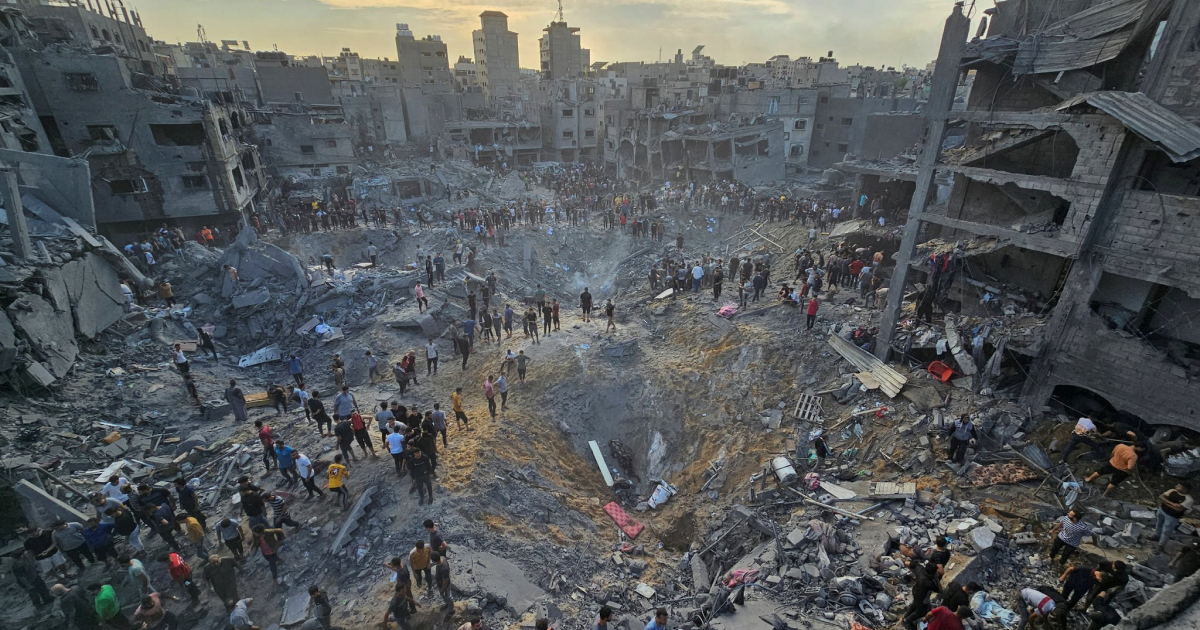On October 31, Israel struck Gaza's Jabalia refugee camp: UN and EU condemn attack

On October 31, the Israeli Defence Forces launched a rocket attack on the Jabalia refugee camp in Gaza. The IDF claims that a senior Hamas commander was killed in the strike. The UN and the EU condemned the strike.
BBC reports.
Gaza's Hamas-run health ministry said 50 people were killed and 150 wounded. But a nearby hospital said it received 400 casualties, including 120 dead.
Pictures showed several large craters, surrounded by shattered buildings.
The IDF claims that a senior Hamas commander was allegedly killed in the strike, and that the "underground infrastructure" beneath the buildings collapsed.
Also, according to the Israeli side, a "large number of terrorists" from Hamas's Central Jabalia Battalion who had been with the commander at the time were also killed.
Israeli tanks and troops, meanwhile, continued to advance towards some of northern Gaza's most populated areas, including Jabalia.
European Union High Representative Josep Borrell reacted to the strike.
"Building on EU Council’s clear stance that Israel has the right to defend itself in line with international humanitarian law and ensuring the protection of all civilians, I am appalled by the high number of casualties following the bombing by Israel of the Jabalia refugee camp," he said.
Borrell added that international humanitarian law could not be applied selectively.
"With each passing day, as the situation becomes more and more dire (...). The safety and the protection of civilians is not only a moral, but a legal obligation," he said.
Martin Griffiths, UN Under-Secretary-General also responded.
"Scores of civilians have reportedly been killed in Gaza following recent attacks on the Jabalia refugee camp. This is just the latest atrocity to befall the people of Gaza where the fighting has entered an even more terrifying phase, with increasingly dreadful humanitarian consequences," the statement reads.
He noted that the hostilities and the closure of checkpoints meant that people could not access food, jobs, health care and other essential services.
Photo: BBC News


